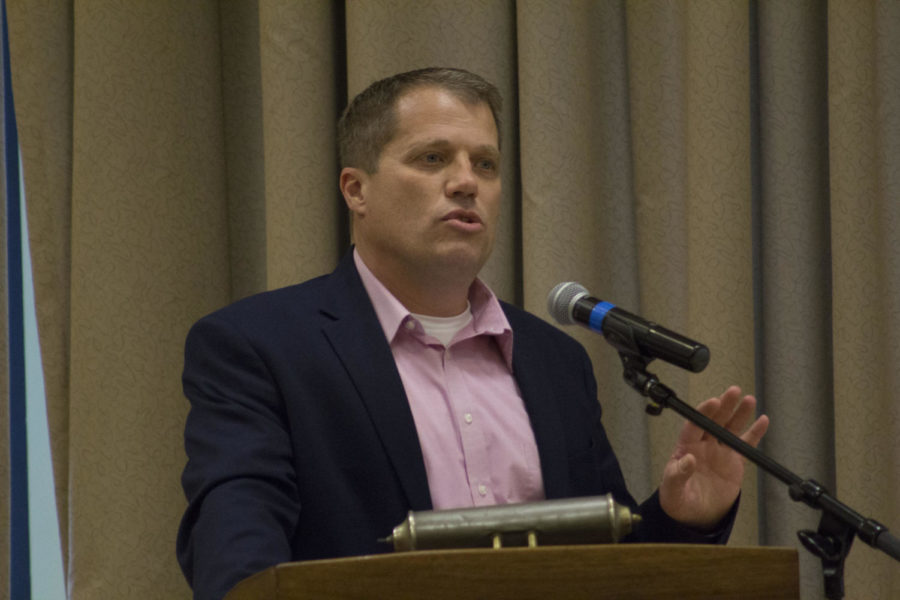Student-athletes highlighted at Faculty Senate meeting
Professor of biomedical sciences, Tim Day, spoke about the academic performance of student athletes at Iowa State during Tuesday’s Faculty Senate meeting. The Faculty Senate consists of 82 representatives elected by the general faculty.
April 18, 2017
Athletics were featured prominently during Tuesday’s Faculty Senate meeting in order to report on the successes of the “student” within a student-athlete, specifically graduation trends.
Tim Day, faculty athletics representative and president-elect of the Faculty Senate, presented on the positive data trends that summarize student-athlete education statistics in 2016.
When compared to standard university students, who on average held a 2.99 GPA in the fall and a 2.97 GPA in the spring, student-athletes were able to hold a higher average GPA of 3.04 in the fall and 2.99 in the spring.
Success can also be seen when comparing student-athlete graduation rates over a six-year cohort, nearly 75 percent, to the 71 percent rate of normal university students.
“With this data, we ask, ‘Does the student body and athletic body match up with this data?’ And these numbers show this is the case,” Day said.
When looking at the NCAA’s required academic progress report (APR), which rates student-athlete university attendance out of 1,000, Day was excited to announce improvements to nearly every sport score. Day specifically highlighted the diving team, which consistently outperforms every athletic team in APR score.
“Diving are much like the kids in your class who are disappointed with a 99 percent and always wanting to get a 100 no matter the score,” Day said.
The Iowa State football team posted its highest APR score in the last six years, a feat Day described as unique given the recent changes to the coaching staff.
“Football will post its best number ever, which is especially positive with a new coach,” Day said. “What is often seen is a loss of retention when there’s a new coach but not in this case.”
To end his speech, Day praised the work of Iowa State wrestler Quean Smith and described his story as “not necessarily an athletic success but a success for Iowa State as a whole.”
Smith was featured in a story in the Iowa State Daily in March that detailed his lifestyle change after moving from Detroit to Iowa State under a wrestling scholarship.
Faculty Senate President Jonathan Sturm presented briefly on his updates to a meeting with Iowa State interim President Ben Allen.
Sturm said that Allen vocalized three goals for his time as president of the university. These included ensuring faculty remained engaged even during university budget cuts, retaining fundraising momentum and keeping Iowa State strong for the future.
The senate brought to discussion the removal of several Iowa State minors as well as the addition of both the newly proposed minor and certificate in data science, which were unanimously approved.
Discontinuation of the minor in athletic coaching was brought forward for discussion. Mainly due to confusion on what exactly the program entails, only UNI supports the minor out of the three Iowa regent universities.
The senate justified the change by adding that there were many outside resources that would allow students to receive certificates in the field.
The final minor change led to the discontinuation of the sports and recreation program. According to the senate, the minor no longer aligned with the department and takes away resources that could be used elsewhere.
















